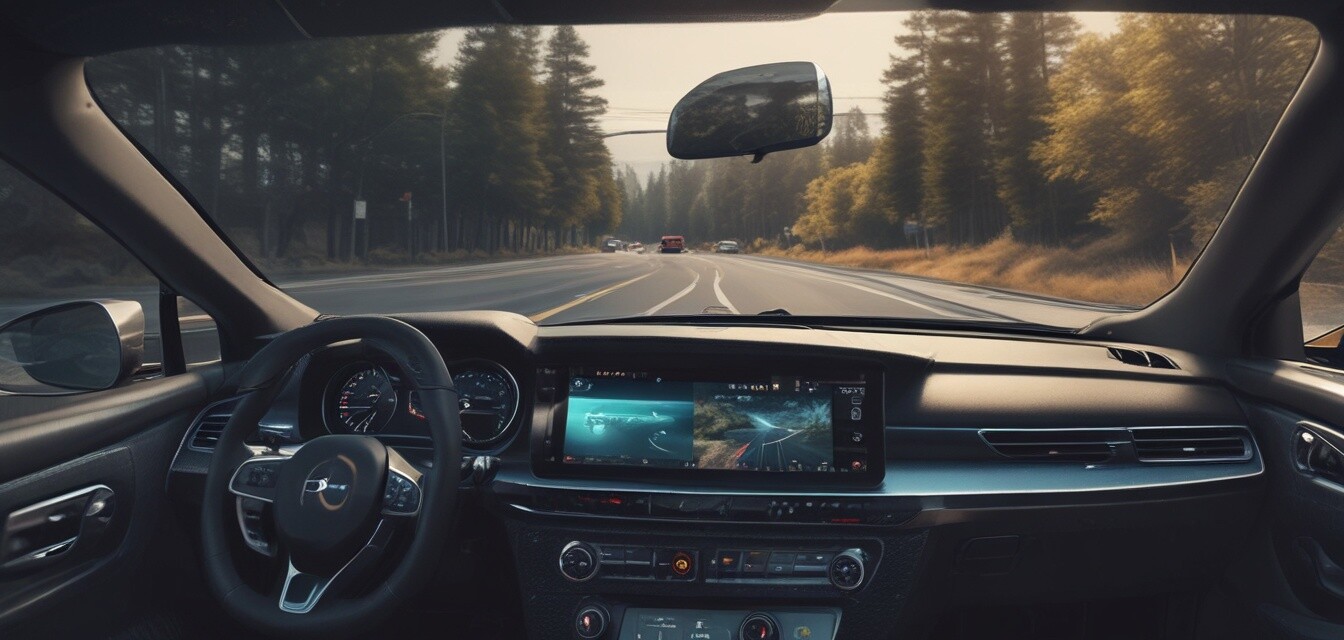
Evaluating Wi-Fi Enabled Dashcams: Are They Worth It?
Key Takeaways
- Wi-Fi enabled dashcams allow for easier data transfer and live streaming.
- Built-in Wi-Fi offers convenience for accessing recordings from smartphones.
- Wi-Fi functionality can enhance safety features like parking mode and incident alerts.
- Comparing various models helps determine the best fit for individual needs.
In today's fast-paced world, technology plays a significant role in our daily lives, especially while driving. One of the most innovative inventions in vehicle safety and security is the dashboard camera, also known as a dashcam. Among the various types available, Wi-Fi enabled dashcams are becoming increasingly popular. But are they worth the investment? In this article, we explore the advantages of Wi-Fi connectivity in dashcams and how it enhances user experience.
What is a Wi-Fi Enabled Dashcam?
A Wi-Fi enabled dashcam is a device that captures video footage of the road and can connect to Wi-Fi networks, allowing users to share videos or access recordings through an app on their smartphones. This connectivity offers many benefits that traditional dashcams lack.
Advantages of Wi-Fi Connectivity in Dashcams
- Easy access to footage: Users can quickly download videos directly to their mobile device without needing to remove the memory card.
- Live streaming: Some dashcams allow for live video streaming, giving users real-time visibility of their surroundings.
- Convenience: Wi-Fi connectivity often includes app controls, status alerts, and settings adjustments, enhancing usability.
- Smartphone integration: Access recordings from anywhere, making it easy to share footage with authorities or insurance companies.
- Automatic backups: Configure the dashcam to upload footage directly to the cloud, ensuring data is saved even if the camera is damaged.
Top Features to Look for in a Wi-Fi Enabled Dashcam
When considering a Wi-Fi enabled dashcam, essential features can guide your choice. Below is a comparison of a few outstanding models on the market:
| Model | Video Resolution | Field of View | Special Features |
|---|---|---|---|
| Pelsee P1 Duo | 4K + 1080P | Wide-Angle | Night Vision, Loop Recording, App Control |
| GKU D1000 | 4K + 3 Channel | 170° | GPS, Super Night Vision, Dual Lens |
| GKU D1000 3 Channel | 4K + 1080P + 1080P | 170° | 5G Wi-Fi, G-Sensor, 24H Parking Mode |
Understanding the Pros and Cons of Wi-Fi Enabled Dashcams
Pros
- Enhanced accessibility to recordings
- Real-time surveillance and monitoring
- Cloud storage for data backup
- Convenience of mobile app use
Cons
- Potential for higher costs compared to standard models
- Requires reliable Wi-Fi connection
- Possible security risks if not properly secured
Is a Wi-Fi Enabled Dashcam Right for You?
Choosing a dashcam largely depends on your specific needs and driving habits. If you prioritize security, easy access to footage, and tech integration, a Wi-Fi enabled dashcam may be beneficial. However, if you're looking for a simpler and more budget-friendly option, a traditional dashcam could suffice.
Conclusion
Wi-Fi enabled dashcams offer valuable features that enhance user experience and safety on the road. With advantages such as easy access to recordings, live streaming, and smartphone integration, they are becoming a popular choice among drivers. By evaluating the specific features and assessing your needs, you can decide whether investing in a Wi-Fi enabled dashcam is worth it.
Tips for Beginners
- Always check compatibility with your smartphone before purchasing.
- Research user reviews for insights on functionality and durability.
- Consider additional features like GPS tracking for added security.
- Opt for devices that allow for easy installation and setup.
- Be aware of security settings to protect your data when utilizing Wi-Fi features.
Additional Resources
- Budget Dashboard Cameras
- Dashcams for Rideshare Drivers
- 4K Dashboard Cameras
- Night Vision Dashboard Cameras
- Dashcams with GPS Tracking
